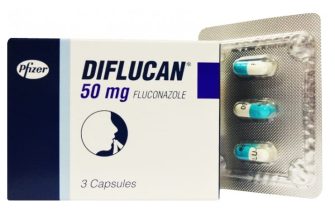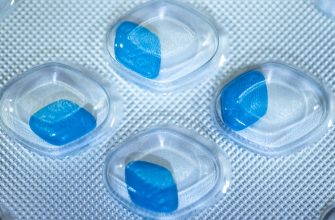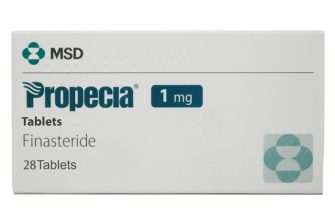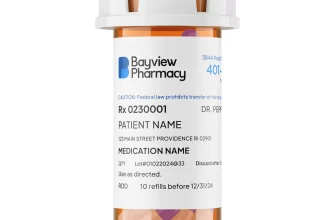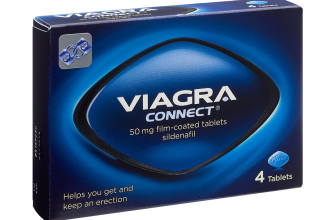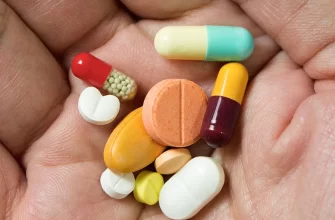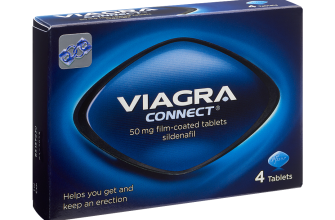Using 100mg of Viagra can be safe for many individuals, especially under a doctor’s guidance. It is crucial to consult a healthcare provider to determine if this dosage suits your specific health profile. Personalized medical advice ensures that potential risks are minimized, and the benefits are maximized.
Studies suggest that the majority of users tolerate 100mg well, experiencing improved erectile function. However, side effects such as headaches, flushing, and upset stomach may occur. Understanding your body’s response is important; if adverse effects become bothersome, communicating with a healthcare professional is advisable.
For those with certain medical conditions, such as severe heart disorders or low blood pressure, a lower dosage may be necessary. Always disclose your full medical history and any medications you are currently taking to your doctor. This transparency helps in tailoring the most suitable treatment strategy for your needs.
In summary, 100mg of Viagra can be a safe choice for many, provided it is used responsibly and under medical supervision. Regular follow-ups with your healthcare provider will help evaluate the effectiveness and safety of your treatment, ensuring you achieve optimal results while maintaining your health.
- Is 100mg Viagra Safe?
- Understanding Viagra and Its Uses
- Common Uses of Viagra
- Dosage Information
- Dosage Guidelines for Viagra
- Potential Side Effects of 100mg Viagra
- Serious Side Effects
- Interactions with Other Medications
- Who Should Avoid 100mg Viagra?
- Interactions with Other Medications
- Nitrates
- Alpha-blockers
- Consulting Your Doctor Before Use
- Real-Life Experiences with 100mg Viagra
- Alternatives to 100mg Viagra for ED Treatment
Is 100mg Viagra Safe?
Using 100mg of Viagra can be safe for many individuals, particularly those who have been prescribed this dose by a healthcare professional. It’s crucial to consult a doctor before starting any medication, as they will evaluate your health history, current medications, and any underlying conditions.
The FDA approves Viagra primarily for erectile dysfunction. For many, the standard starting dose is 50mg, which can be adjusted to 100mg if necessary and tolerated. It’s important to follow your doctor’s advice closely.
Common side effects of 100mg Viagra may include headaches, flushing, upset stomach, nasal congestion, and dizziness. Most side effects are mild, but you should seek medical attention if you experience severe complications, such as chest pain or an erection lasting more than four hours.
If you have certain pre-existing conditions such as heart issues, low blood pressure, or are taking nitrates, this dosage might not be appropriate. Always disclose your full medical profile to your healthcare provider to ensure safe usage.
Maintaining communication with your doctor during treatment is vital. Regular check-ins allow for adjustments based on your body’s response and help manage any concerns that may arise.
In conclusion, while 100mg Viagra can be safe for some individuals, it’s essential to prioritize medical guidance to maximize benefits and minimize risks. Always use this medication responsibly to ensure your health and safety.
Understanding Viagra and Its Uses
Viagra, or sildenafil citrate, is primarily used to treat erectile dysfunction (ED). It increases blood flow to the penis during sexual stimulation, helping achieve and maintain an erection. Typically, Viagra is taken as needed, approximately 30 minutes to 1 hour before sexual activity.
Common Uses of Viagra
- Erectile Dysfunction: The most common purpose of Viagra. Users report improved ability to achieve an erection.
- Pulmonary Arterial Hypertension: Viagra is also prescribed to treat this serious condition, as it helps relax blood vessels in the lungs and improve blood flow.
- Off-label Uses: Some doctors may prescribe Viagra for conditions like Raynaud’s phenomenon and other circulatory disorders.
Dosage Information
Viagra is available in various dosages, including 25mg, 50mg, and 100mg tablets. Most users start with 50mg, adjusting based on effectiveness and tolerance under medical supervision. The maximum recommended dose is 100mg, not to exceed once per day.
- 50mg: Common starting dose.
- 100mg: Higher dose for those who find 50mg less effective.
- Considerations: Age, health status, and potential interactions with other medications can influence the appropriate dose.
Consulting a healthcare professional is crucial before starting Viagra to ensure safety and compatibility with other medications. Adhering to recommended guidelines maximizes benefits while minimizing risks.
Dosage Guidelines for Viagra
The typical starting dose for Viagra is 50 mg, taken as needed about one hour before sexual activity. Based on individual efficacy and tolerance, your healthcare provider may adjust the dose to 100 mg or reduce it to 25 mg.
Men aged 65 and older or those with specific health issues may begin with a lower dose of 25 mg to minimize the risk of side effects. The maximum recommended frequency is once every 24 hours, ensuring adequate time for the medication to take effect and wear off.
Take Viagra on an empty stomach for optimal results, as high-fat meals can delay its absorption. If you notice little to no improvement after using the medication, consult with your healthcare provider for further evaluation and possible adjustments to your treatment plan.
Alcohol use can impair the effectiveness of Viagra and increase the risk of side effects. Limit alcohol consumption to enhance your experience with the medication. Always refer to your healthcare professional for personalized advice regarding your specific circumstances and medical history.
Potential Side Effects of 100mg Viagra
100mg of Viagra can lead to various side effects. The most common include headaches, flushing, and indigestion. These reactions generally occur as the body adjusts to the medication. Hydration and a light meal may help alleviate indigestion.
Serious Side Effects
Less frequently, users experience more severe reactions. These can include sudden vision loss, hearing impairment, or an erection lasting more than four hours, known as priapism. If any of these occur, seek immediate medical attention to prevent long-term complications.
Interactions with Other Medications
Viagra can interact negatively with certain medications, especially nitrates used for heart conditions. This combination can lead to dangerous drops in blood pressure. Always consult a healthcare provider regarding current medications before starting Viagra to ensure safety and avoid adverse effects.
Who Should Avoid 100mg Viagra?
Individuals with cardiovascular diseases should refrain from using 100mg Viagra. This includes those with a history of heart attacks, arrhythmias, or uncontrolled high blood pressure. The medication can increase heart rate and blood pressure, posing significant risks.
Patients taking nitrates for chest pain need to avoid this dosage. The combination can lead to severe drops in blood pressure, which may result in dizziness or fainting.
Men with severe liver or kidney impairment should not use 100mg Viagra, as these conditions can affect the drug’s metabolism and increase the risk of side effects.
People with retinitis pigmentosa, a rare genetic eye condition, should also stay clear of this medication, as it may contribute to vision problems.
Those experiencing certain medications, such as some antifungals and antibiotics, should consult a healthcare provider before considering Viagra, as interactions could occur.
Lastly, individuals under 18 years of age should not take Viagra, as its safety and efficacy in younger populations are not established.
Interactions with Other Medications
Patients using 100 mg of Viagra should be aware of potential interactions with other medications. Always consult a healthcare provider before starting or stopping any treatment.
Nitrates
Avoid combining Viagra with nitrates, commonly prescribed for chest pain. The combination can lead to a significant drop in blood pressure, resulting in dizziness or fainting.
Alpha-blockers
If you are taking alpha-blockers for high blood pressure or prostate issues, use Viagra with caution. This combination may also lower blood pressure, so your doctor might recommend adjusting doses to ensure safety.
Certain medications for HIV or fungal infections, such as protease inhibitors and azole antifungals, may increase Viagra’s levels in the bloodstream. This can heighten the risk of side effects. Discuss any current medications with your healthcare provider to prevent adverse interactions.
Anticonvulsants and antibiotics can also impact how Viagra works. Monitoring and possible dosage adjustments may be necessary to ensure efficacy and minimize risks.
In some cases, recreational drugs known as “poppers,” which contain amyl nitrite, may dangerously interact with Viagra. Avoid using these substances together.
Your healthcare provider will help assess all medications to create a safe and effective treatment plan tailored to your needs. Communicate openly about all prescriptions, over-the-counter medications, and supplements you use.
Consulting Your Doctor Before Use
Always consult your doctor before taking 100mg of Viagra. Your healthcare provider will evaluate your medical history and any existing conditions that could influence your safety with this medication.
Consider the following aspects when discussing with your doctor:
- Current Medications: Inform your doctor about all medications you are currently using. Certain drugs can interact negatively with Viagra, increasing the risk of side effects.
- Health Conditions: Disclose any cardiovascular issues, liver or kidney problems, or history of priapism. These conditions can affect the appropriateness of Viagra for you.
- Drug Allergies: Let your doctor know if you have any allergies to ingredients in medications, including Viagra. Possible allergic reactions require careful consideration.
- Dosage Adjustment: Depending on your health status, your healthcare provider may suggest a lower dose or different medication altogether.
Regular check-ins with your doctor will help monitor any side effects or health changes once you start using Viagra. Always prioritize safety and open communication during your treatment plan.
Real-Life Experiences with 100mg Viagra
Many individuals report positive outcomes after using 100mg Viagra. Users often notice significant improvements in their ability to achieve and maintain erections. One user shared that this dosage provided a reliable response, allowing for spontaneity in intimate moments without needing extensive planning.
In terms of side effects, experiences vary. Commonly mentioned effects include headaches, facial flushing, and occasional dizziness. A user stated that these side effects were mild and manageable, especially when compared to the benefits achieved. Another found that staying hydrated helped mitigate headaches during usage.
Communication plays a role in the success of Viagra. Users highlight the importance of discussing sexual health openly with partners. This dialogue not only eases anxiety but also enhances the overall experience, allowing both partners to feel more relaxed and engaged.
Timing is another critical factor. Taking the medication about an hour before sexual activity tends to yield the best results. One individual noted that planning made a difference, leading to higher satisfaction levels for both him and his partner.
Here’s a summary of user experiences with 100mg Viagra:
| Experience Aspect | User Feedback |
|---|---|
| Erection Quality | Significantly improved, more reliable |
| Side Effects | Mild headaches, facial flushing |
| Communication | Crucial for comfort and intimacy |
| Timing | Optimal results when taken 1 hour prior |
Overall, personal experiences indicate that 100mg Viagra can be a transformative option for many individuals, enhancing both confidence and enjoyment in intimate relationships.
Alternatives to 100mg Viagra for ED Treatment
Cialis (tadalafil) is a popular option for erectile dysfunction, working for up to 36 hours. Patients can take it as needed or daily, depending on their preferences. This flexibility allows for spontaneity in intimate moments.
Levitra (vardenafil) is another viable choice, effective within 30 minutes and lasting about 5 hours. Its quick onset makes it a handy option for those who don’t want to plan ahead.
Stendra (avanafil) is known for its rapid action, taking as little as 15 minutes before sexual activity. It presents a good option for men who appreciate immediacy. Its effects last for up to 6 hours.
For those who prefer non-pharmaceutical approaches, vacuum erection devices provide a mechanical method for achieving an erection. They create a vacuum around the penis, promoting blood flow, and are effective in many cases.
Penile injections, such as alprostadil, directly stimulate blood flow to the penis. While they may require an adjustment period, they can offer satisfactory results for those who do not respond to oral medications.
Talk to a healthcare provider about lifestyle changes as an alternative strategy. Diet, exercise, and reducing stress can significantly impact erectile function. Regular physical activity improves blood circulation and can enhance overall sexual health.
Consider counseling or therapy, especially if psychological factors contribute to erectile dysfunction. A therapist can address anxiety, depression, or relationship issues, supporting patients in overcoming these barriers.
Herbal supplements like ginseng or yohimbine might offer potential benefits, but results vary. Consult a healthcare professional before trying these options to avoid adverse effects or interactions with other medications.
Ultimately, various alternatives to 100mg Viagra exist. Consult with a healthcare provider to identify the best treatment tailored to individual needs.


